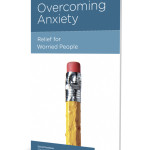It depends on the issue. Liberal Christians are getting increasingly vocal and hostile towards conservative Christians over the issue of being one issue voters. They seem to think the Democratic platform is more consistent with Christian values than the Republican platform and argue that Christians should not be one issue voters.
However, I don’t think they would want to apply their logic to the election of the first Republican president. Lincoln became president because Christians in the north united over the one issue of slavery. They believed that slavery was evil and they should form a political party around that one issue and elect a candidate on that one issue. I believe they were not only right to do so, but also courageous.
However, we should be careful about the one issue that becomes so prominent. For example, an important industry to our region is the oil and gas industry. I personally benefit from this industry as my grandfather started an oil and gas company in the 1940s. However, I believe it would be selfish if that was the one issue that determined how I voted. I appreciate teachers. I was forever impacted by great teachers, I have a lot of teachers in my family, and I also teach a course at a local Christian high school. However, again, I don’t think education issues should be the only issue that drives my vote. Both are important but fracking laws and teacher pay simply do not rise to the level of forming a new political party.
But, are liberal Christians’ premises true? Are conservative Christians really one issue voters? Is the Democratic platform (minus the abortion issue) really more consistent with a biblical worldview?
My strong assumption is that abortion is a central issue for most conservative Protestants and Catholics. However, I think it would be good for liberal Christians to hear that most conservative Christians are concerned about a series of issues beyond abortion. For example, they are concerned the left is content to chip away our religious liberty like targeting a baker to write words that violate his religion or forcing nuns to pay for abortifacients. Liberals have preyed upon and harassed Mr. Phillips and the Little Sisters of the Poor for years now. Senators Feinstein, Sanders, and Harris have also harassed Christians for their biblical beliefs in Senate confirmation hearings. Christians are also concerned that liberals are trying to take away their free speech like the example of Chike Uzuegbunam being told he can’t preach the gospel at the free speech area of his Georgia college. Christians are also concerned that secular liberals continue to legislate from the bench robbing the voice of the people in cases like Whole Woman’s Health v. Hellerstedt. Further, in the pandemic, liberal politicians have had clear double standards against church gatherings like Calvary Chapel in Dayton, NV and Grace Community Church in Sun Valley, CA. I pray my progressive friends can hear that conservative Christians are actually fearful of progressive politicians and policies. Conservative Christians are not one issue voters, they have a growing list of concerns with the left.
It is also obvious to most people that when comparing the two general platforms of the political parties, it is not persuasive that the Democrats have a more biblical worldview. Like liberals, conservative Christians care about the poor, but a theological understanding of poverty has been disregarded by the left. Like liberals, most conservative Christians care about issues of racism, but probably don’t agree with radical solutions like defunding the police. We understand that the right has had racist parts of its history, but so has liberalism and the Democratic party. Like liberals, most conservative Christians understand far right immigration proposals are unloving and unrealistic. However, the solutions provided by the far left are also unrealistic and unloving to those hurt by our immigration policies. Like liberals, most conservative Christians want to treat people with kindness and decency, but most conservative Christians see wokeness as ridiculous and cancel culture as dangerous.
To my liberal friends, there are bridges to be built on issues of education, racism, caring for the impoverished, and immigration. However, Christians feel like you kicked us out of your discussions long ago. We are having trouble going along with your solutions because they are so radical and don’t take into account our convictions.
To my liberal friends, most conservative Christians younger than 45 (that I know) don’t like Trump. However, they are actually scared of the far left. Why couldn’t those two guys have just found another baker? Why couldn’t the Obama administration respect the religious convictions of those nuns? Why couldn’t that Georgia college just let one of their students exercise his free speech?
Should Christians be one issue voters? Maybe. Abortion is the greatest injustice in our country today. The killing of unborn children rises to the level of slavery in the 1850s. If there is an issue that rises to the level of being that one ultimate issue, then abortion is it. I know the Republicans have taken advantage of that conviction, but where else am I supposed to go?
Liberal friends, the problems are much deeper than one issue. This really has not been a case for abortion being the one issue that should guide Christians votes. My hope in asking the question is to help my liberal friends see that Christians are not one issues voters, but not because it is wrong to be a one issue voter if the issue is something has monumental as slavery or abortion. Rather, my hope is to help my liberal friends see that Christians have a long list of issues that push us away from liberalism. Christians are not, in the end, one issue voters because there is a growing list of concerns with the radical left.
Liberal friends, bring us into the conversation. Be willing to compromise. It could get you some votes.






